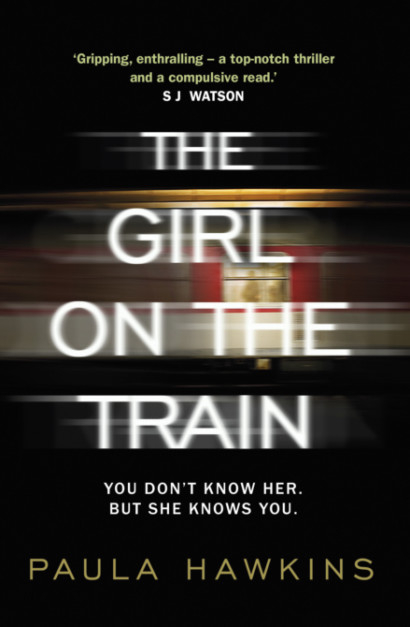
The Girl on the Train
By Paula Hawkins, Riverhead Books, 336 pages, $27
Rachel is travelling home from work. It’s the end of the week — “TGIF” — so she’s already cracked open a can. “I take another sip, and another; the can’s already half empty but it’s OK, I have three more in the plastic bag at my feet. It’s Friday, so I don’t have to feel guilty.”
She is immediately intriguing, this narrator, staring from her carriage at the passing houses (“there’s something comforting about the sight of strangers safe at home”). Intriguing — and rawly lonely. “The weekend stretches out ahead of me, 48 empty hours to fill. I lift the can to my mouth again, but there’s not a drop left.”
The façade Rachel presents to her fellow commuters soon starts to slip but not before Paula Hawkins begins to drop hints about how things are not quite as they seem for this commuter on the 8.04am train from Ashbury to Euston.
Rachel, it turns out, especially likes it when her train judders to a halt outside a particular row of Victorian houses, imagining a whole life for Jason and Jess, the “perfect, golden couple” from 15 Blenheim Road. She likes to watch them, she reveals, because she can’t bear to glimpse what might be going on in number 23, the house where she used to live, now inhabited by her ex-husband, Tom, and his new wife, Anna.
Rachel is an alcoholic, living with a begrudging friend, still plaguing her ex with aggressive, drunken phone calls. She’s prone to blackouts, to embarrassing outbursts she can’t quite remember, to “memories that merge and morph and shift, fooling me into believing that what is, is not, telling me to look one way when really I should be looking another way”. And she’s utterly, hard-to-look-straight-at miserable.
When Rachel sees something she shouldn’t have, and when she learns that the woman she called Jess — who is really Megan — has vanished, she is drawn back into the lives of the inhabitants of Blenheim Road.
Hawkins is assured and confident, plaiting together the stories of her three narrators and moving back and forth in time as she narrows in on one fateful — and forgotten, in Rachel’s case — night.
There’s Anna, blissfully happy in her new life with Tom, beautiful and serene and maybe just a little bit smug. There’s Megan, who doesn’t quite fit into her world of Pilates and coffees and perfect wifedom. And there’s Rachel, careering wildly between disasters, peering into the black pit of the July night when Megan vanished.
“Something is wrong,” she writes. “For a second, I feel as though I’m falling, as though the bed has disappeared from beneath my body. Last night. Something happened. The breath comes sharply into my lungs and I sit up, too quickly, heart racing, head throbbing.”
With its unreliable narrators and vanished wife, there are “Gone Girl” comparisons to be made here. But “The Girl on the Train”, by a Zimbabwe-born journalist who has lived in London since 1989, is a much more British affair. Less dramatic, less psychotic. And a building, inescapable tension that Hawkins handles superbly, nibbling away at Rachel’s memories until we, like our sardonic, bitterly honest narrator, aren’t really sure we want to know what happened at all. The thriller scene will have to up its game if it’s to match Hawkins this year.
–Guardian News & Media Ltd









